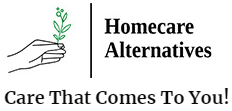As the field of healthcare continues to evolve, so does the way we approach caregiving. With the rapid advancement of technology, caregiving apps have emerged as powerful tools to assist both caregivers and their loved ones in managing various aspects of home health care. From tracking someone’s well-being to scheduling appointments and connecting with support groups, these apps are revolutionizing the way we provide care. In this article, we will explore the latest trends in home health care and delve into how caregiving apps are transforming the landscape.
The Rise of Caregiving Apps
Caregiving apps have gained immense popularity in recent years, offering a range of features designed to ease the burden on caregivers and enhance the quality of care provided. These apps provide a one-stop solution for caregivers, empowering them with the tools they need to navigate the complexities of home health care.
Tracking and Monitoring
One of the key features of caregiving apps is the ability to track and monitor the well-being of loved ones. These apps allow caregivers to record vital signs, track medication schedules, and monitor activity levels, providing them with real-time insights into the health status of their loved ones. With this information at their fingertips, caregivers can detect any potential issues early on and take proactive measures to ensure the well-being of their loved ones.
Information and Education
Another invaluable aspect of caregiving apps is the access to trusted information and educational resources. These apps provide caregivers with a wealth of information on various health conditions, medications, and caregiving techniques. By having access to reliable information, caregivers can make informed decisions and provide the best possible care for their loved ones.
Appointment Management
Caregiving apps also simplify the process of managing appointments. With busy schedules and multiple healthcare providers involved, keeping track of appointments can be challenging. Caregiving apps offer features that allow caregivers to schedule appointments, set reminders, and even sync with the calendars of healthcare providers. This streamlines the process and ensures that no appointments are missed, leading to better overall care.
Medication Management
Managing medications can be a complex and critical aspect of caregiving. Caregiving apps provide tools to help caregivers track medication schedules, set reminders for dosage times, and even order refills. These features not only ensure that medications are taken as prescribed but also help prevent any potential medication errors, improving the overall safety and effectiveness of treatment.
Support and Community
Caring for a loved one can be emotionally challenging, and caregivers often need support and understanding from others who are going through similar experiences. Caregiving apps offer the ability to connect with support groups and online communities, providing a platform for caregivers to share their stories, seek advice, and find solace. This sense of community can be invaluable in reducing caregiver stress and promoting overall well-being.
The Future of Home Health Care
The integration of caregiving apps into home health care is just the beginning of a broader transformation in the healthcare industry. As technology continues to advance, we can expect even more innovative solutions to emerge, further enhancing the caregiving experience.
Artificial Intelligence and Machine Learning
Artificial intelligence (AI) and machine learning (ML) have the potential to revolutionize home health care. These technologies can analyze vast amounts of data and provide personalized insights and recommendations for caregivers. From predicting potential health issues to suggesting optimal care plans, AI and ML will play a crucial role in improving the efficiency and effectiveness of home health care.
Remote Patient Monitoring
Remote patient monitoring is another area that holds great promise for the future of home health care. With the help of wearable devices and connected sensors, caregivers can remotely monitor vital signs, activity levels, and other health indicators. This real-time data can enable early intervention and prevent hospital readmissions, ultimately reducing healthcare costs and improving patient outcomes.
Virtual Reality and Telemedicine
Virtual reality (VR) and telemedicine are transforming the way healthcare is delivered, particularly in remote areas or for individuals with limited mobility. Caregiving apps can integrate VR technology to provide immersive experiences, such as virtual therapy sessions or interactive educational programs. Telemedicine, on the other hand, allows caregivers to connect with healthcare professionals remotely, eliminating the need for physical visits and reducing barriers to access care.
The future of home health care is undoubtedly shaped by caregiving apps and the continuous advancements in technology. These apps empower caregivers with the tools and resources they need to provide the best possible care for their loved ones. As we embrace the potential of AI, remote patient monitoring, and virtual reality, we can look forward to a future where home health care is more accessible, efficient, and personalized than ever before.
Homecare Alternatives: Call today! 352-681-8993


 RSS - Posts
RSS - Posts